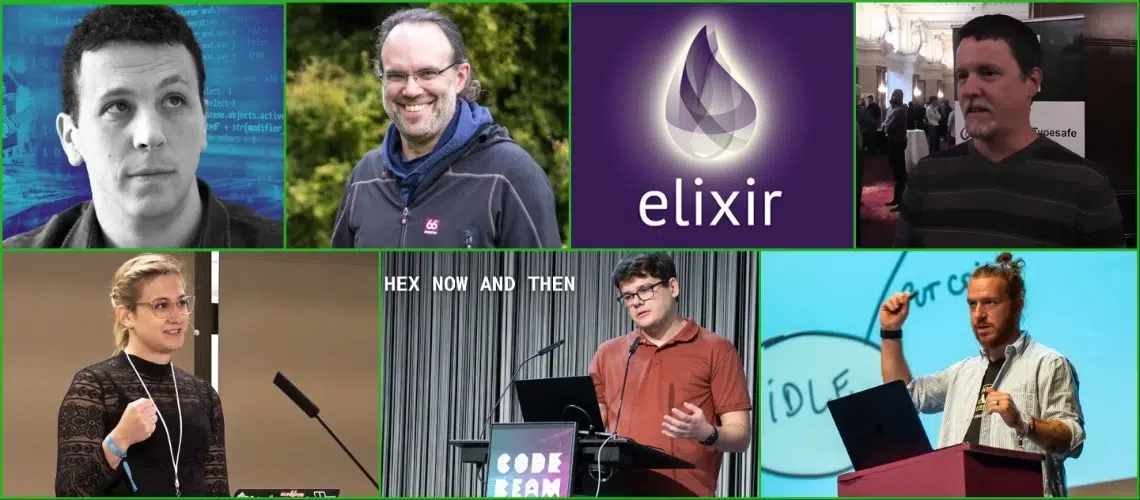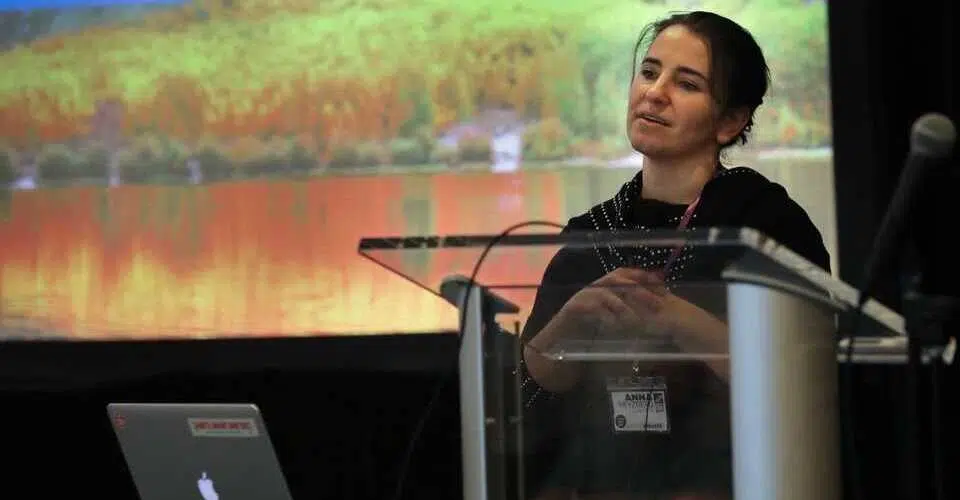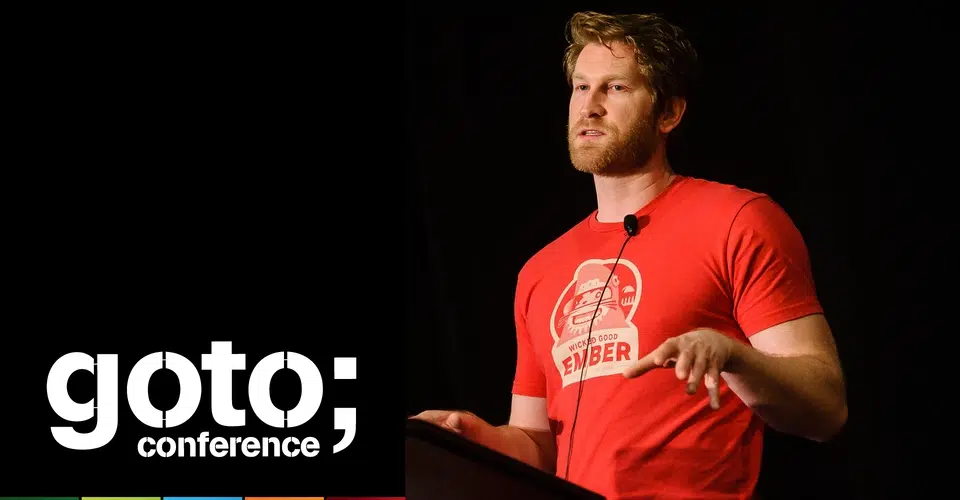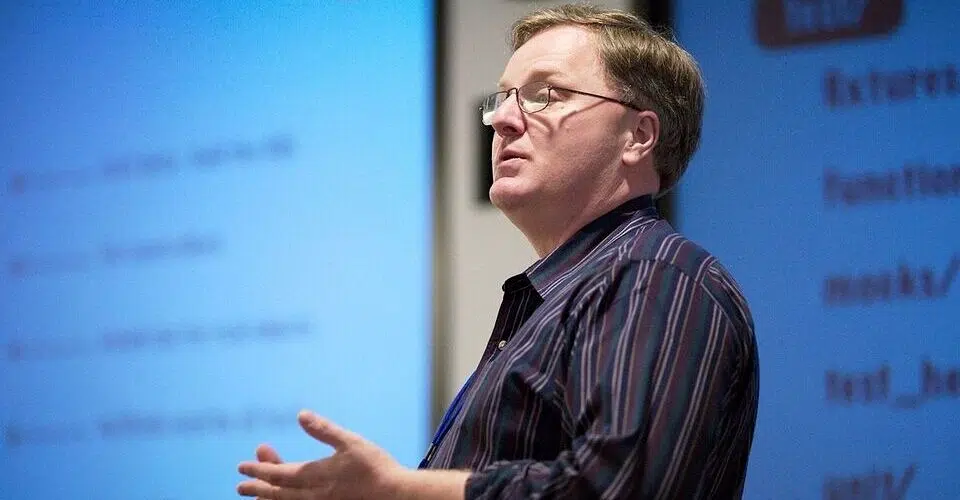Top 25 Elixir Developers Changing the Game

Elixir has grown into one of the most beloved programming languages, largely due to the tireless work of an exceptional global community.
This includes core team contributors, innovative open-source tool creators, startup founders coding on the frontlines, top engineers scaling Elixir in enterprise environments, and educators inspiring the next generation of functional programmers. Below is an updated and curated list of some of the most influential Elixir developers worldwide, recognized for their deep technical contributions, community leadership, and lasting impact on the BEAM ecosystem.
- Wojtek Mach
- Ben Wilson
- Bruce Tate
- Sasa Juric
- Sophie DeBenedetto
- Brooklin Zelenka
- Paul Schoenfelder
- Parker Selbert
- Dave Thomas
- Michał Muskała
- Andrea Leopardi
- Alex Koutmos
- Ben Marx
- Anna Neyzberg
- Marlus Saraiva
- Boyd Multerer
- Chris Keathley
- Bruce Williams
- Jason Fertel
- Brian Cardarella
- Eric Meadows-Jönsson
- Devon Estes
- Danish Kalesaran
- Jonatan Kłosko
- Frank Hunleth
Now, let’s delve deeper into their remarkable journeys and lasting impacts.
Wojtek Mach

Nationality: Polish
Wojtek is an Elixir core team member and the creator of several important developer tools, such as Req and Livebook Desktop. He has been a key maintainer of foundational libraries: a member of the Ecto SQL team, co-maintainer of Hex, and contributor to ExDoc.
In the last few years, Wojtek introduced MyXQL and, as part of Dashbit, helped companies adopt Elixir by improving libraries like Finch and Telemetry. Wojtek’s work might not always make headlines, but it profoundly impacts developer experience: whether it’s making HTTP requests more joyful, ensuring package management is reliable, or providing an easy on-ramp for new Elixirists via better docs and tools. He exemplifies the unsung heroes who polish the ecosystem to a shine.
- Linkedin: Wojtek Mach
- X (Twitter): @wojtekmach
- Github: wojtekmach
Ben Wilson
GraphQL is a compelling choice, and while we’ll often touch on why, we’ll move on to actually building things with it rather quickly.
Nationality: American
Ben is the other half of the duo behind Absinthe and co-author of the Pragmatic book on GraphQL in Elixir. He served as Lead Backend Engineer at CargoSense, where Absinthe was born, and later as CTO.
Ben has been deeply involved in expanding Absinthe’s capabilities – including the introduction of the Absinthe schema notation, middleware system, and a powerful test infrastructure for GraphQL queries. In the last few years, he has worked on Absinthe’s integration with Phoenix (Absinthe Plug) and contributed to community support on the Elixir Forum and Slack, answering GraphQL questions. Wilson also appears on podcasts like Thinking Elixir to discuss GraphQL vs REST trade-offs with Elixir. Currently, he continues to maintain Absinthe and its ecosystem and collaborates with the community on feature requests.
- Linkedin: Ben Wilson
- Github: benwilson512
Bruce Tate

Nationality: American
Bruce is an award-winning author and the founder of Grox.io, an Elixir training platform. After a prominent career writing books like Seven Languages in Seven Weeks, Adopting Elixir, and Designing Elixir Systems with OTP, Bruce turned his focus to “giving back” through education.
In the last few years, he co-authored Programming Phoenix LiveView and has been actively running training courses, workshops, and the Groxio content service to grow the Elixir community. Tate is also a conference organizer (helping with ElixirConf and Code BEAM events) and a frequent speaker, renowned for his engaging storytelling that weaves in software wisdom. With 10+ years of functional programming experience, Bruce’s leadership and passion for teaching have onboarded countless developers to Elixir and fostered a supportive community environment.
- Linkedin: Bruce Tate
- X (Twitter): @redrapids
Sasa Juric

Nationality: Croatian
Saša is a developer renowned for deep knowledge of Elixir/Phoenix and for authoring Elixir in Action, one of the community’s favorite books. With a background in high-performance server systems, Saša became an Elixir mentor and blogger who shares advanced patterns for scalable Phoenix applications.
He writes “(not only) Erlang related musings” on his blog The Erlangelist, exploring topics like OTP, concurrency, and code design in Elixir. A member of the Elixir core team in the past, Saša frequently contributes to open source and has created libraries to support robust Phoenix systems. He worked as a chief Elixir architect at companies like Aircloak and VeryBigThings, helping teams adopt Phoenix in production. Saša is also a sought-after speaker – known for talks like “To spawn, or not to spawn” – and is admired for his clear, pragmatic explanations. He continues to support the community through blog series and by answering questions to help others build reliable Phoenix apps.
- Linkedin: Saša Jurić
- X (Twitter): @sasajuric
- Github: sasa1977
Sophie DeBenedetto
I think Elixir has a pretty gentle learning curve for people coming from other backgrounds. It’s really easy to get excited about Elixir as a developer, to start solving problems really quickly and efficiently, and once you start stacking up those wins you get hooked on learning more and building more.
Nationality: American
Sophie is a staff engineer at GitHub and a prominent voice in the Elixir community. She co-authored Programming Phoenix LiveView (Pragmatic Bookshelf) and has written extensively on Elixir and Phoenix, both on her blog and as an AppSignal guest author.
In the past three years, Sophie has contributed to open source and co-hosted the Beam Radio podcast, where she discusses Elixir’s evolution. She is passionate about coding education, having been an instructor at the Flatiron School before her Elixir career. DeBenedetto frequently speaks at conferences and on podcasts about LiveView and beginner-friendly Elixir patterns. Through her writing and teaching, Sophie has helped many developers (especially newcomers) embrace functional web programming with Elixir’s modern tools.
- Linkedin: Sophie DeBenedetto
- X (Twitter): @sm_debenedetto
- Github: SophieDeBenedetto
- Website/Blog: sophiedebenedetto.com
Brooklin Zelenka

Nationality: Canadian
Brooklin is a co-founder of Fission and an open-source contributor in the Elixir ecosystem. She created Witchcraft, an Elixir library that brings functional programming abstractions into the language.
Brooklin is also involved in BEAM research at the intersection of blockchain and distributed systems, having worked on Ethereum smart contract tooling and UCAN auth protocols. Over the last few years, Zelenka has given keynotes and talks globally about advanced functional patterns and “local-first” software, bridging the gap between academic concepts and industrial Elixir use. An advocate for community, she helped organize the Vancouver Elixir and functional programming meetups. Brooklin’s blend of deep technical insight and entrepreneurial spirit has pushed Elixir into new domains like decentralized and local-first applications.
- Linkedin: Brooklyn Zelenka
- Github: expede
- Website/Blog: notes.brooklynzelenka.com
Paul Schoenfelder
Nationality: American
Paul is an American engineer who has been crucial in the infrastructure side of Elixir/Phoenix deployments. He is the author of Distillery, the widely used release packaging tool that for years was the standard way to deploy Phoenix applications as self-contained OTP releases.
Paul’s work on Distillery filled a critical gap for Elixir in production and influenced the design of Elixir’s built-in mix release feature. As an Architectural Engineer at DockYard, he also worked on scaling Phoenix apps and even on R&D like the Lumen project. Paul has contributed to many libraries: Libcluster, Swarm, and others that underpin distributed Phoenix deployments.
Now a co-founder/CTO at a new startup, Paul remains at the cutting edge of Phoenix’s future. He frequently shares insights on forums and podcasts, helping the community navigate tricky DevOps and architecture challenges in Elixir/Phoenix.
- Linkedin: Paul Schoenfelder
- X (Twitter): @gotbones
- Github: bitwalker
Parker Selbert
Nationality: American
Parker is the developer behind Oban, Elixir’s most popular background job processing framework. Oban, which leverages PostgreSQL for queuing and persistence, has become a critical piece of infrastructure for many Elixir applications.
In the past three years, Parker has grown Oban into a robust, enterprise-ready system – introducing features like job isolation, dynamic scaling, and a plugin system for extensibility. He co-founded Soren, a small consultancy, to provide commercial support and an “Oban Pro” extension, demonstrating a successful open-source sustainability model. Selbert is active in the community, sharing Oban’s architecture in talks and on podcasts, and recently co-authored content on scaling Oban for large applications.
- X (Twitter): @sorentwo
- Github: sorentwo
- Website/Blog: sorentwo.com
Nationality: British
Dave is an industry luminary best known as co-author of The Pragmatic Programmer, and he played a pivotal role in popularizing Elixir and Phoenix to the wider programming community.
A seasoned developer and author, Dave wrote Programming Elixir, one of the earliest books introducing Elixir to newcomers. He also created the “Elixir for Programmers” course and has delivered many talks advocating functional programming and Phoenix for modern web development. With decades of experience (he also helped launch Ruby on Rails’s popularity), Dave brought credibility to Elixir as a production-ready language. His approach to teaching – pragmatic and example-driven – has on-boarded countless developers to Phoenix. Even as a founder of the Pragmatic Bookshelf and an educator, Dave still codes and experiments with new Phoenix features, sharing insights with the community.
- Linkedin: Dave Thomas
- X (Twitter): @pragdave
Michal Muskala
Nationality: Polish
Michał has been a key contributor to Elixir’s ecosystem, known for his work on the Ecto SQL library and the Jason JSON parser. A former member of the Elixir core team, Michał’s focus has been on performance and internals – he has contributed optimizations to the Elixir compiler and runtime, and even worked on an alternative BEAM implementation.
In recent years, Muskała transitioned to working on the Erlang/OTP team at WhatsApp, where he improves the BEAM’s tooling while still engaging with the Elixir community. He frequently speaks about advanced topics like garbage collection, and his blog posts are highly regarded. Michał’s open-source libraries and his continued behind-the-scenes contributions have had a significant impact on Elixir’s efficiency and reliability.
- Linkedin: Michał Muskała
- X (Twitter): @michalmuskala
- Github: michalmuskala
Andrea Leopardi

Nationality: Italian
Andrea Leopardi is an Elixir core team member and co-author of Testing Elixir: Effective and Robust Testing for Elixir and its Ecosystem (PragProg, 2021). On the core team, Andrea has contributed to improvements in the language’s tooling and documentation, especially around ExUnit and mix.
He’s passionate about testing practices – his book and talks cover how to leverage Elixir’s concurrency in test suites and how to design for maintainability. In the last few years, Leopardi has also taught at workshops and mentored developers. Online, he’s known by his handle “whatyouhide” and shares insights on topics like making all tests async or network programming in Elixir. Currently an engineer at Apple, Andrea continues to be a community reference for writing clean, well-tested Elixir code. His contributions ensure that as the language grows, developers have solid guidance and tools for quality assurance.
- Linkedin: Andrea Leopardi
- X (Twitter): @whatyouhide
- Github: whatyouhide
- Website/Blog: andrealeopardi.com
Alex Koutmos
Nationality: American
Alexander is a developer-entrepreneur who has leveraged Phoenix in startups and created tools to improve Elixir development. He co-founded Papercups, an open-source live chat platform built with Phoenix that gained popularity as a drop-in alternative to Intercom.
Alex is also the creator of PromEx, a comprehensive Prometheus metrics library for Phoenix applications that can export rich metrics and pre-built Grafana dashboards. PromEx fills a key gap in observability, making it easier to monitor Phoenix apps. Alex currently works as a Senior Software Engineer at Boulevard, where he continues to code in Elixir/Phoenix for building scalable services. He’s active in content creation: writing on his blog about engineering topics and co-hosting podcasts like Beam Radio.
In the community, he’s recognized for his practical guides – for instance, his article “My Thoughts v1: Elixir from an engineer/business perspective” helps newcomers understand Elixir’s value proposition. Koutmos’s mix of startup experience and open-source tooling illustrates Phoenix’s strengths. As both an entrepreneur and engineer, he remains an advocate for using Phoenix to rapidly build and iterate on business ideas.
- Linkedin: Alex Koutmos
- X (Twitter): @akoutmos
- Github: akoutmos
- Website/Blog: akoutmos.com
Ben Marx
Nationality: American
Ben was one of the first engineers to deploy Phoenix at massive scale in industry. As lead developer at Bleacher Report, he introduced Elixir/Phoenix to handle the sports media site’s high traffic and notifications, proving its viability in a top Alexa-ranked site.
He later co-authored Adopting Elixir, sharing strategies for introducing Phoenix/Elixir into existing teams and projects. Ben also became a Software Architect at SubSpace, where he again utilized Elixir for real-time services. His journey – from replacing a Rails architecture at Bleacher Report to building event-driven systems – has been featured in webinars and talks.
Now an engineer at WhatsApp (Meta) as of 2023, Ben remains an influential voice for companies evaluating Phoenix. His advocacy and real-world examples have helped many teams confidently adopt Phoenix in mission-critical systems.
Anna Neyzberg

Nationality: American
Anna is an engineer and educator known for her work in diversifying the Elixir/Phoenix community and for speaking about concurrent systems. She co-founded ElixirBridge, an outreach program that offers free Elixir/Phoenix workshops to underrepresented groups, helping to grow a more inclusive community.
In her professional career, Anna has worked as an Engineering Manager and software engineer, where she guides teams using Elixir among other technologies. She remains a coder at heart – evident when she takes the stage at conferences. Anna has delivered talks like “Go vs Elixir: A Concurrency Comparison” and “How Do We Shape Community”.
Anna’s impact is also local: she helped organize the SF Elixir meetup and mentored many through ElixirBridge events. By lowering barriers to entry and sharing knowledge on OTP and Phoenix, Neyzberg has played a key role in the ecosystem’s growth. Her dual emphasis on people and technology continues to shape Phoenix’s community ethos.
- Linkedin: Anna Neyzberg
- X (Twitter): @ANeyzb
- Github: aneyzberg
Marlus Saraiva
Nationality: Brazilian
Marlus has been at the forefront of improving developer experience in Elixir’s web and data-processing arenas. He created Surface, a component-based server-side UI library for Phoenix LiveView, bringing a more structured, React-like feel to LiveView development.
Surface introduced compile-time checking for LiveView components and influenced upcoming LiveView API improvements. Marlus is also a co-creator of Broadway, the concurrency framework for processing data streams, which is used for building data pipelines in Elixir. In addition, he developed ElixirSense. As part of Dashbit’s engineering team, Saraiva has in the past 3 years worked on integrating Surface’s ideas into Phoenix and written about advanced LiveView patterns. He often appears in panel discussions to discuss the future of LiveView components.
Marlus’s contributions have greatly enhanced productivity for Elixir developers, from web UIs to background processing, making complex tasks simpler and more “Elixir-ish.”
- Linkedin: Marlus Saraiva
- X (Twitter): @MarlusSaraiva
- Github: msaraiva
Boyd Multerer

Nationality: American
Boyd is a former Microsoft engineer who founded Xbox Live and XNA, now turned Elixir enthusiast responsible for creating Scenic, a functional UI framework for Elixir. Scenic enables native GUI development on the BEAM, opening Elixir to use-cases like kiosk interfaces and instrumentation displays.
Multerer released Scenic in 2018 and has continued to improve it, recently ensuring compatibility with the latest LiveView and incorporating more drivers. Boyd also founded Kry10, a company building a secure operating system with Elixir and the seL4 microkernel, aiming to bring the BEAM’s fault tolerance to mission-critical devices. He frequently speaks about the intersection of safety, security, and the BEAM. Multerer’s decades of experience combined with his fresh work in Elixir has inspired many to realize that Elixir isn’t just for web servers – it can power UIs and operating systems.
- Linkedin: Boyd Multerer
- X (Twitter): @BoydMulterer
- Github: boydm
Chris Keathley
Nationality: American
Chris is a U.S.-based engineer recognized for his open-source libraries and for co-hosting the popular Elixir Outlaws podcast. As a principal engineer in the energy sector, Chris brings Phoenix into new domains. In the community, he’s best known for creating Wallaby and Raft. These projects showcase his ability to tackle both developer experience and deep engineering problems.
Chris is also a core maintainer of libraries like Vapor and a contributor to many others. His blog and talks often explore how to write cleaner, more maintainable Elixir code – for example, he gave a keynote “SOLID Code Isn’t Flexible” challenging some OOP notions in the context of functional Phoenix apps. As a podcast host on Elixir Outlaws for over 100 episodes, Chris has discussed everything from gossip protocols to team practices, influencing how developers think about building with Phoenix.
Known jokingly as a “dynamic language apologist”, he’s a strong advocate for Elixir’s pragmatic use in real systems over static-typing debates. Keathley’s mix of library development, thought leadership, and real-world project experience solidifies his spot among the Phoenix elite.
- Linkedin: Chris Keathley
- X (Twitter): @ChrisKeathley
- Github: keathley
- Website/Blog: keathley.io
Bruce Williams
Nationality: American
Bruce is co-creator of Absinthe, the GraphQL toolkit for Elixir, and co-author of the book Craft GraphQL APIs in Elixir. As the CTO of CargoSense, Bruce adopted Elixir early and built one of the first production GraphQL systems on the BEAM.
Over the past few years, he has continued to guide Absinthe’s development, which includes a rich GraphQL schema DSL, subscriptions for real-time updates, and a supportive community. Williams also created supporting libraries like Dataloader and contributed to the broader ecosystem. A polyglot and language enthusiast, Bruce frequently speaks at conferences about API design, Elixir’s metaprogramming, and balancing idiomatic Elixir with GraphQL needs.
- Linkedin: Bruce Williams
- Github: bruce
Jason Fertel

Nationality: American
Jason introduced Elixir at PepsiCo’s e-commerce engineering division, making the global Fortune 50 company one of Elixir’s highest-profile users. In 2016, he built PepsiCo’s first Elixir-based application, which proved so successful that it was integrated company-wide and opened the door for Elixir adoption across multiple teams.
As an engineering manager, Jason championed Elixir for its productivity and scalability, even speaking about it on podcasts and at ElixirConf 2019. Over the last few years, he led a team that scaled PepsiCo’s internal Elixir services and helped hire and mentor Elixir developers in a traditionally enterprise environment. Fertel’s efforts showed that Elixir can deliver value in fast-paced corporate projects, not just startups. By paving the way at PepsiCo, he has inspired other large companies to consider Elixir for their high-performance backends.
- Linkedin: Jason Fertel
- Github: fertel
Brian Cardarella

Nationality: American
Brian is the founder and former CEO of DockYard, one of the premier consulting firms that specialize in Phoenix and Elixir development. Under Brian’s leadership, DockYard not only delivered Phoenix applications for clients but also invested heavily in the open-source community.
He hired Chris McCord early on and provided sponsorship that enabled Phoenix and LiveView to flourish. Brian himself is a developer-turned-entrepreneur; while running DockYard he remained hands-on, guiding technical architecture and even contributing to initiatives like LiveView Native. He also launched DockYard Academy to train new Elixir/Phoenix developers, addressing the talent pipeline.
Today, DockYard’s success stands as part of Brian’s legacy, showing how Phoenix can drive business value. Cardarella’s mix of business acumen and technical advocacy has had an outsized impact on Phoenix adoption in industry.
- Linkedin: Brian Cardarella
- X (Twitter): @bcardarella
- Github: bcardarella
Eric Meadows-Jönsson
Nationality: Swedish
Eric Meadows-Jönsson is a developer whose contributions form the backbone of Phoenix applications’ package management and data layer. Eric is the original creator of Hex, Elixir’s package manager, which he launched in 2013 to provide the community with a fast, reliable way to share libraries.
Today, every Phoenix app depends on Hex for managing dependencies – a testament to Eric’s foresight. He also created Ecto, the database toolkit and ORM that Phoenix uses for modeling and querying data. As a core team member of Elixir, Eric has been an active figure in the BEAM community, known for meticulous, high-quality code. He co-authored Programming Ecto and has spoken about Elixir tooling at conferences since the early days. For many years, Eric maintained Hex and Ecto almost single-handedly, iterating them to maturity.
- Linkedin: Eric Meadows-Jönsson
- X (Twitter): @emjii
- Github: ericmj
Devon Estes
Nationality: American
Devon is an Elixir engineer and blogger known for pushing the language to its performance limits and then sharing the results. He maintains Benchee, the benchmarking library widely used to compare Elixir code performance, and was a maintainer of the Elixir track on Exercism, helping newcomers learn idiomatic Elixir.
In recent years, Devon has published a series of insightful blog posts covering topics like OTP performance tips, compiler optimizations, property testing, and more. He’s a frequent guest on podcasts (Elixir Wizards, Thinking Elixir) where he discusses how to write fast and reliable Elixir – often challenging assumptions and digging into BEAM internals. Estes has also contributed code to libraries (for example, helping improve Enum functions and writing the Muzak mutation testing tool).
- Linkedin: Devon Estes
- X (Twitter): @devoncestes
- Github: devonestes
- Website/Blog: devonestes.com
Danish Kalesaran
Nationality: Indonesian
Danish is a software engineer with a strong focus on Elixir, particularly known for his clear and concise educational content such as his article on Elixir’s pipe operator.
Based in Jakarta, Danish is the founder of Learn-Elixir.dev and currently works as a Senior Full Stack Engineer at Bloggle. His experience spans front-end and back-end development with Elixir, Phoenix, and JavaScript, alongside contributions in Rust and system design. Danish actively contributes to the Elixir community by simplifying complex topics and sharing practical insights from his professional journey.
- Linkedin: Danish Kalesaran
Jonatan Klosko
Nationality: Polish
Jonatan is the primary developer behind Livebook, the innovative web-based notebook platform for Elixir. Still early in his career, Jonatan astonished the community by creating a polished product that enables code notebooks (à la Jupyter) powered by Elixir’s runtime.
In the last three years, he has relentlessly improved Livebook with features like multi-user collaboration, custom smart cell extensions, integration with Nx for visualizing data, and even deploying Livebook to embedded devices. Kłosko also developed Bumblebee, a library that brings pre-trained machine learning models to Elixir, often used through Livebook’s UI. He works at Dashbit alongside José Valim, contributing to Nx and other ML tooling as well.
- Github: jonatanklosko
- Website/Blog: jonatanklosko.com
Frank Hunleth
Nationality: American
Frank is a co-creator and long-time maintainer of the Nerves Project, the go-to platform for building and deploying embedded systems in Elixir. He is also closely associated with embedded Elixir tooling such as the Elixir Circuits libraries, and he has spoken frequently about bringing BEAM reliability to devices.
In the last few years, Frank has continued to expand the practical reach of embedded Elixir, from improving core Nerves tooling to educating teams through talks and podcast appearances focused on real hardware deployments. For many Elixir developers, Nerves is the first credible path from web backends into production devices, and Frank’s steady maintenance work is a major reason the ecosystem feels approachable rather than experimental.
- Linkedin: Frank Hunleth
- X (Twitter): @fhunleth
- Github: fhunleth
Wrap Up
These experts represent exceptional talent, making them extremely challenging to headhunt. However, there are thousands of other highly skilled IT professionals available to hire with our help. Contact us, and we will be happy to discuss your hiring needs.
Note: We’ve dedicated significant time and effort to creating and verifying this curated list of top talent. However, if you believe a correction or addition is needed, feel free to reach out. We’ll gladly review and update the page.
Frequently Asked Questions
Yes, Elixir developers remain in demand, especially for real-time applications, distributed systems, and services that need high scalability and fault tolerance.
In the US, Elixir developers typically earn between $90,000 and $130,000 annually. Freelance or contract rates usually range from $50 to $110 per hour depending on expertise and project scope.
An Elixir expert should have strong knowledge of functional programming, concurrency with the BEAM VM, and experience with the Phoenix framework. Skills in building APIs, real-time apps, and distributed systems are valuable.
You can find Elixir developers through freelance platforms, specialized staffing agencies, and communities like ElixirForum, GitHub, or LinkedIn groups dedicated to functional programming.
Companies such as Discord, Pinterest and Moz have used Elixir for building scalable systems, along with many startups focusing on real-time and distributed applications.

